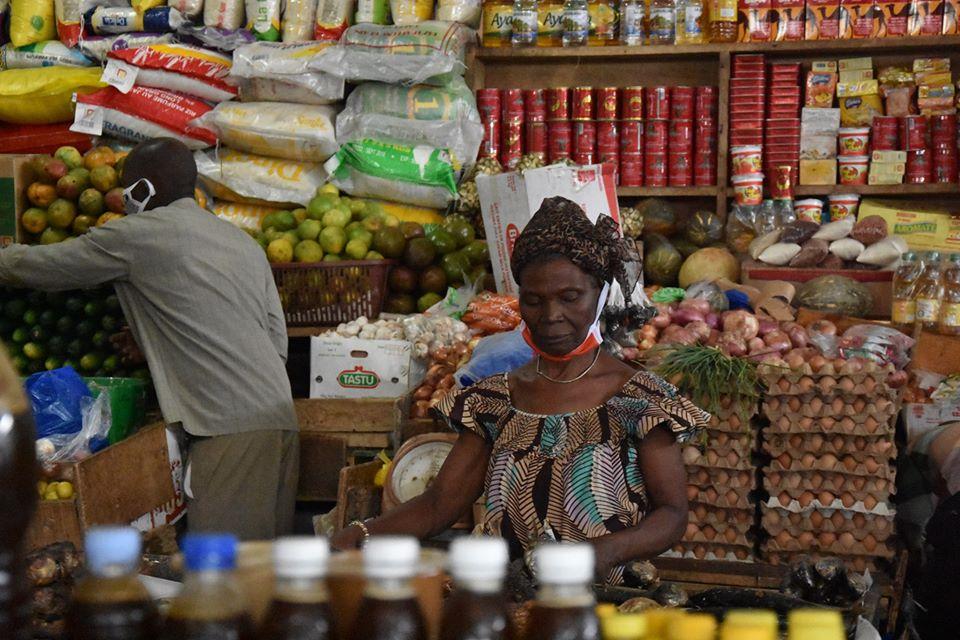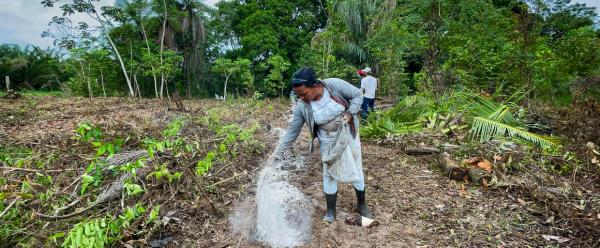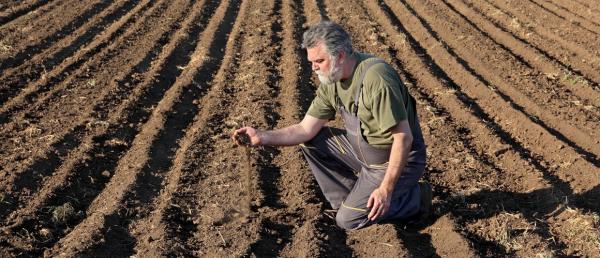Expert view 25 April 2024
- Home
- CIRAD news
- News
- Covid-19 and food security | Ivory Coast is protecting its local food systems
Covid-19 and food security | How Ivory Coast is protecting its local food systems

In Abidjan and other cities in Ivory Coast, restrictions linked to the Covid-19 crisis have substantially disrupted lives. However, despite the curfew, ban on gatherings, closure of popular restaurants – known as "maquis" – and the sealing-off of the capital, Ivorians can still buy the basic elements of their traditional diet.
Local food products are available
In Ivory Coast, food security relies on a broad range of local foodstuffs that are used in traditional dishes, for instance tubers (cassava, yam, sweet potatoes), plantains, and cereals (maize, millet, rice, etc).
The country has security stocks of all these goods , to limit shortages in the case of unexpected events. Current government figures put tuber and plantain stocks at three to six months.
As regards millet, maize and local rice, the situation is more complicated. There is just a month of stocks, and imported rice stock levels will not cover more than four months' consumption.
Lastly, while the market garden crop harvest at the start of the year will satisfy requirements until the end of the second quarter, the crops due to be planted in March are running late, due to the current situation (i).
To support food, market garden and fruit crop production, the government has announced an exceptional support plan totalling 50 billion CFA francs.
As regards animal products, Ivorians have just a month of stocks of for fishery products, and up to three months of stocks for livestock products. However, meat demand is continuing to be at least partly satisfied by bushmeat (venison, agoutis, etc), which is still being eaten outside Abidjan despite the ban as a result of the virus. These products are also still being widely imported, but for how long?
Points of sale remain open
The products that make up the basic diet in Ivory Coast are therefore mostly still available. However, the challenge is to guarantee supplies to the country's shops and markets.
Travel between the capital and the rest of the country has been banned since 29 March, but a system of permits introduced by the Ivorian government means that the country's cities, notably the capital, continue to be supplied with food products, while the port in Abidjan is still open.
The government has also opted to allow all traditional markets and modern hypermarkets to remain open. It is relying on the local authorities, and mayors in particular, to enforce the necessary sanitary measures. People must wash their hands on entering, masks are compulsory, and installations are disinfected regularly. Only social distancing is proving difficult to implement.
The traditional system provides around 75% of household food, generating an annual turnover of some 6000 billion CFA francs. At least 500 000 traders work in the country's markets (ii). For the moment, basic food prices are relatively stable.
Hypermarkets, supermarkets and mini-markets account for 25% of food sales in volume terms, with an estimated turnover of 2000 billion CFA francs (ii). The sector offers some 7500 jobs and except for fresh food, supplies mainly imported goods, notably from France.
Like elsewhere in the world, supermarkets were besieged as soon as rumours of lockdown began to circulate. Shelves are commonly stripped for fear of shortages. This situation will undoubtedly worsen if the crisis continues and locally produced or imported supplies shrink.
(i) source: Ministry of Agriculture and Rural Development
(ii) source: Ministry of Trade and Industry


























